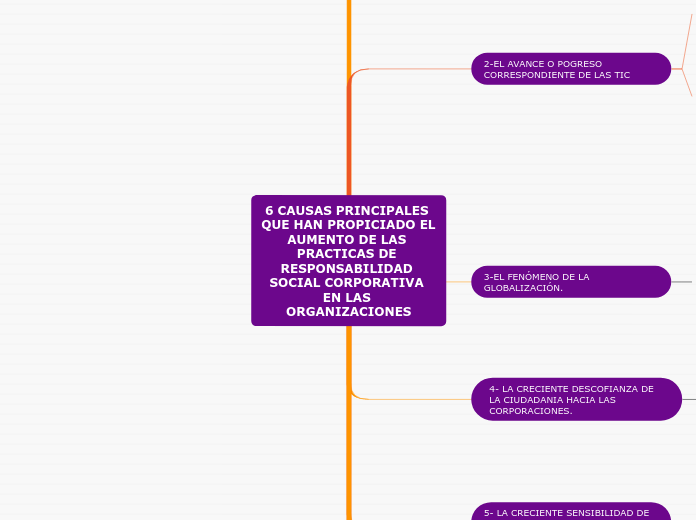Técnicas para hablar en publico
The part of speech is a category to which a word is assigned according to its syntactic functions. In English the main parts of speech are noun, pronoun, adjective, determiner, verb, adverb, preposition, conjunction, and interjection.
La confianza
A conjunction is a word like 'if' 'but' or 'and' which is used to connect sentences or clauses together.
Para desarrollar la confianza debemos intentar aquello que se quiere aprender, hasta ver lo que se ha obtenido, y de esa manera empezar a crecer
Coordinating conjunctions always connect phrases, words, and clauses. They are: for, and, nor, but, or, yet, so.
La actitud positiva
A preposition is one of the most exciting parts of grammar. A preposition is used to describe the location of something in relation to something else.
Mantener una actitud positiva
When a preposition consists of more than one word, it is called double preposition.
Lo recomendable es repetir las siguientes frases: "Yo puedo hacerlo", "Cada día soy mejor orador", etc
Compound preposition consists of two or more words.
No tener pensamientos negativos como ¿Qué tal me sale mal? o ¿Y si se me olvida algo?
When a preposition consists of one word it is called single or simple preposition.
La voz
An interjection is used to express emotion in a sentence.
Think of other interjections!
Se debe hacer cambios en el volumen, tono y velocidad de tu voz a lo largo de la presentación
Tener una voz modulada
Tu voz debe proyectar entusiasmo y convicción
La practica
An adverb is used to describe a verb, but it can also describe an adjective or another adverb.
Adverbs normally help paint a fuller picture by describing how something happens.
Utilizar esquemas como guía para practicar
Practicar al menos 10 veces frente al espejo
La preparacion
A numeral is a word or phrase that describes a numerical quantity.
Some theories of grammar use the word 'numeral' to refer to cardinal numbers that act as a determiner to specify the quantity of a noun, for example the 'two' in 'two hats'.
Para hablar debes estar convencido
Debes investigar lo suficiente para dominar en tema
Comete errores
An article is a word used to modify a noun, which is a person, place, object, or idea. Technically, an article is an adjective, which is any word that modifies a noun.
Los seres humanos aprendemos 10 veces mas de nuestros errores, que de nuestros aciertos
Indefinite articles are the words 'a' and 'an.' Each of these articles is used to refer to a noun, but the noun being referred to is not a specific person, place, object, or idea. It can be any noun from a group of nouns.
De los errores se aprende
It refers directly to a specific noun or groups of nouns.
El enfoque
A pronoun is a word that can be used in place of a noun, typically after the noun itself has already been stated.
Enfócate con pasión a tu mensaje
A reflexive pronoun ends with ...self or ...selves and refers to another noun or pronoun in the sentence (usually the subject of the sentence). The reflexive pronouns are myself, yourself, herself, himself, itself, ourselves, yourselves, and themselves.
No prestar a las personas que te están observando, ni tampoco te prestes atención a ti mismo porque te vas a distraer
Demonstrative pronouns are used to demonstrate (or indicate). This, that, these, and those are all demonstrative pronouns.
Definir cual es el mensaje que quieres transmitir a los oyentes
Possessive pronouns are used to show possession. The possessive pronouns are mine, yours, his, hers, ours, and theirs.
Enfocarse en una sola cosa durante la exposición
The personal pronouns are I, you, he, she, it, we, they. More often than not (but certainly not always), they replace nouns representing people.
La sinceridad
An adjective is a word that's used to describe a specific noun and to provide more detail to the listener.
Debes desarrollar una intención sincera de ayudar a las personas a quienes les vas hablar
Superlative adjectives demonstrate a higher level of comparison between entities.
Cuando se hable frente a un publico, se debe hacerlo de manera autentica
Expresses a comparison between two entities or groups of entities in quality or degree.
La respiración profunda
A noun is defined as a person, place, thing or idea. Proper nouns always begin with a capital letter. Common nouns, which are general words, such as 'cars,' are not capitalized.
Tambien hacerlo minutos antes de la exposición
A noun which refers to a group of things/people.
Dedica unos diarios a respirar profundamente
Countable nouns are nouns that can be counted, even if the number might be extraordinarily high.
Uncountable nouns are nouns that come in a state or quantity which is impossible to count; liquids are uncountable, as are things which act
like liquids.
Control del miedo
A verb is an action word or 'doing' word that signifies movement in some way.
Acostumbrarse a exponer
A linking verb connects the subject with a word that gives information about the subject, such as a condition or relationship.
Necesitamos enfrentar nuestros miedos
A verb with its own meaning: a verb that is not an auxiliary verb.









